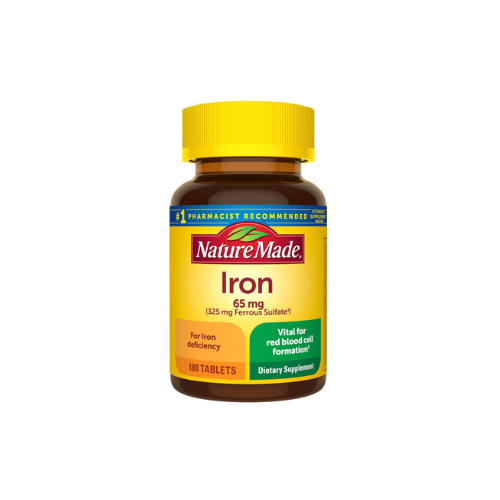Iodine Carnivore Diet
Ensuring Adequate Intake for Optimal Health
The carnivore diet emphasizes the consumption of animal products and excludes plant-based foods. It's a regimen that has been adopted by many for its purported health benefits, including weight loss and reduced inflammation. An area of concern for those following this diet is the intake of essential micronutrients that are typically found in a more varied diet, one of which is iodine. Iodine is a critical element for thyroid function and overall metabolic health; it's required for the synthesis of thyroid hormones, which regulate numerous physiological processes.
On a carnivore diet, sources of iodine are more limited compared to diets that include seafood and fortified foods. The majority of the dietary iodine intake in many populations comes from iodized salt and dairy products, followed by seafood and eggs. For individuals following a carnivore diet, attention must be paid to ensure adequate iodine levels are met, as deficiencies could lead to adverse health effects, including thyroid dysfunction. Iodine can be found in animal-based foods such as fish, shellfish, eggs, and dairy products, with seafood being among the richest sources.
It is important for those on a carnivore diet to consider the inclusion of iodine-rich foods such as cod and eggs or to look for alternative ways to meet their iodine requirements, perhaps through supplementation like cod liver oil. While the diet simplifies food choices, it introduces the challenge of ensuring that all nutritional needs are met through a limited food spectrum. Balancing the carnivore diet carefully to avoid nutrient deficiencies is crucial to sustaining health and wellness on this eating plan.
Fundamentals of Carnivore Diet
The Carnivore Diet emphasizes consuming exclusively animal products and eliminates all plant-based foods. This section explores the diet's core principles and compares it to other dietary approaches.
What Is a Carnivore Diet?
A Carnivore Diet consists of consuming only animal foods, with a focus on meats while excluding any plant-based foods. Proponents often eliminate carbohydrates entirely, aiming for a zero-carb intake. The diet typically includes:
Meats: Beef, pork, lamb, and other red meats
Poultry: Chicken, turkey, and duck
Fish: Especially fatty fish for omega-3 fatty acids
Eggs: A versatile component of the diet
Dairy: Often limited to high-fat products like cheese and butter
The key characteristic of this diet is its exclusion of all plant-derived foods, which means no vegetables, fruits, grains, nuts, seeds, or legumes.
Carnivore Diet vs. Other Diets
In contrast to other popular diets, the Carnivore Diet is on the extreme opposite end of the diet spectrum compared to vegan diets, which exclude all animal products. Here's how the Carnivore Diet stacks up against other diets:
Food Source
Carnivore Diet: Exclusively animal products
Other Diets: Varied, includes plants
Carbohydrate Intake
Carnivore Diet: Zero or near-zero
Other Diets: Varied, from low to high
Plant Foods
Carnivore Diet: None
Other Diets: Included, often central to the diet
While diets like keto emphasize low carbs but still include some plant-based foods, the Carnivore Diet remains strictly animal-focused. This absence of plant foods distinguishes it from mixed diets which often aim for a balance of animal and plant-based nutrients.
Understanding Iodine and Its Importance
Iodine is a crucial nutrient responsible for thyroid function and hormone production. Deficiency can lead to multiple health issues, highlighting the need for adequate intake through diet.
Role of Iodine in the Body
Iodine plays a pivotal role in thyroid health by aiding in the production of thyroid hormones, which regulate metabolism, growth, and energy expenditure. It is involved in critical bodily functions, including:
Hormone Production: Thyroid hormones such as thyroxine (T4) and triiodothyronine (T3) require iodine for their synthesis.
Metabolic Regulation: These hormones influence metabolic rate and are vital for proper metabolic function.
Deficiencies in iodine can result in thyroid disorders such as goiter and hypothyroidism, leading to symptoms like fatigue, weight gain, and cold intolerance.
Sources of Iodine
Obtaining sufficient iodine on a carnivore diet revolves around consuming animal-based foods rich in this nutrient. Key sources include:
Seafood: Offers high concentrations of iodine, particularly in fish like cod and shellfish.
Eggs: Provide a bioavailable form of iodine, essential for those excluding seafood from their diet.
Dairy Products: Certain dairy items like yogurt can contribute to iodine intake.
Supplementation with products like Iodoral can be considered if dietary sources are insufficient to meet daily needs. However, it is crucial to approach supplementation with caution to prevent excessive intake, which can be harmful.
Iodine in Carnivore Diet
The carnivore diet presents unique challenges for obtaining sufficient iodine due to its exclusion of plant-based foods. Efficiently sourcing iodine within this restrictive framework is critical to maintain thyroid health and metabolic functions.
Common Iodine-Rich Foods in Carnivore Diet
In a carnivore diet, iodine predominantly comes from animal sources. Key iodine-rich foods include:
Seafood: Notable for their iodine content, seafood options like shrimp, salmon, and baked cod are excellent choices. A 3 oz serving of baked cod can provide approximately 99mcg of iodine, or 66% of the Recommended Dietary Allowance (RDA).
Dairy Products: Dairy items such as plain yogurt contribute iodine as well, with a 1 cup serving yielding roughly 75mcg, about 50% RDA.
Eggs: While not as rich as seafood or dairy, eggs can also be part of the iodine equation, contributing to the total intake.
Given the diet's restrictions, one may consider supplements such as Iodoral 12.5 mg or Iodoral 50 mg tablets to ensure adequate intake.
Potential Risks of Iodine Deficiency
Iodine deficiency can pose serious health risks, including but not limited to:
Cognitive Impairments: As iodine is pivotal for brain development, deficiency may lead to developmental and intellectual disabilities.
Thyroid Dysfunction: Insufficient iodine can result in thyroid gland issues, potentially leading to conditions like goiter or hypothyroidism.
It's essential individuals on a carnivore diet monitor their iodine intake diligently to preempt these risks.
Health Outcomes of Carnivore Diet
The carnivore diet has been associated with various health outcomes, including positive results in weight management and chronic condition improvement, as well as concerns related to nutrient deficiencies and long-term health effects.
Potential Health Benefits
Weight Loss: Individuals following the carnivore diet often report significant weight loss, which can be attributed to its high protein and low carbohydrate content, leading to increased satiety and reduced calorie intake.
Diabetes and Insulin Resistance: The diet's restriction of carbohydrates may help stabilize blood sugar levels and improve insulin sensitivity, potentially benefiting those with diabetes or metabolic syndrome.
Inflammation and Autoimmune Conditions: Some anecdotal evidence suggests that the elimination of plant-based foods may reduce inflammation, possibly benefiting those with autoimmune conditions.
Mental Health: Anecdotal reports also indicate improvements in some aspects of mental health, although research in this area remains limited.
Risks and Considerations
Restrictiveness and Nutritional Deficiencies: The diet is highly restrictive, raising concerns over potential nutrient deficiencies, particularly iodine, which is crucial for thyroid function but is less commonly found in muscle meats.
Heart Disease: The high intake of saturated fats on the carnivore diet might raise LDL cholesterol levels, which could increase the risk of heart disease, although individual responses can vary considerably.
Cancer Risks: There are concerns that a diet high in red and processed meats may be linked to an increased risk of certain cancers, although causality is still a subject of scientific debate.
Long-Term Health: The long-term health effects of the carnivore diet remain unclear due to a lack of comprehensive studies on its sustainability and potential risks over extended periods.
Nutrients and Carnivore Diet
A carnivore diet is centered on consuming exclusively animal products. It's crucial to manage macronutrient intake and ensure adequate provision of essential micronutrients to prevent deficiencies.
Managing Macronutrient Intake
Protein: A cornerstone of the carnivore diet, protein is abundant in animal foods such as meat, eggs, and fish. It is vital for muscle repair, hormone production, and overall bodily functions.
Fat: Fat is another primary component, providing a rich energy source and aiding in the absorption of fat-soluble vitamins. One must balance intake of saturated and unsaturated fats to maintain cardiovascular health.
Carbohydrates: The carnivore diet typically excludes carbohydrates since it eliminates plant-based foods. As such, individuals must rely on gluconeogenesis, a metabolic pathway that allows the liver to generate glucose from non-carbohydrate sources, to supply the body's minimal glucose needs.
Micronutrients and Vitamins
Magnesium and Selenium: These minerals are crucial for diverse functions, from enzyme reactions to thyroid health. They can be found in animal sources like fish and organ meats. However, supplementation might be necessary due to their lesser abundance compared to a mixed diet.
Vitamin C: Though typically associated with fruits, Vitamin C can be sourced from organ meats on the carnivore diet, negating the common misconception of its absence.
Cholesterol: While found in all animal products, dietary cholesterol's impact on blood cholesterol levels is nuanced; for some individuals, high intake doesn't significantly raise blood cholesterol, while for others, it might necessitate moderation.
Supplementing: Supplementing with vitamins and minerals such as magnesium might be advisable for those on a strict carnivore diet to ensure no deficiency in micronutrients exists.
Discover the endless possibilities of buying magnesium and vitamin C online!
Food Selection in Carnivore Diet
In a carnivore diet, selecting the right types of animal-based foods is crucial for nutrient sufficiency, particularly for iodine. Opting for a variety of meats and including dairy and eggs can provide a balanced intake of necessary nutrients.
Choosing Quality Meats
When it comes to meats on the carnivore diet, quality is paramount. One should seek out grass-fed beef, which provides a rich source of nutrients and fats. For pork and lamb, similarly, the best options are those that are pastured. When considering poultry like chicken and turkey, priority should also be given to free-range options.
Fish, particularly fatty fish such as salmon, shrimp, and crab, is also a valuable part of the carnivore diet, offering both essential fatty acids and iodine. Consuming a variety of these meats, including organ meats such as liver and kidneys, can help ensure a wider range of nutrients, enabling a more comprehensive nutrient profile.
Nutrient Benefits of Various Meats
Beef
Specific Cuts/Options: Ribeye, ground beef
Nutrient Benefits: Vitamin B12, Iron
Pork
Specific Cuts/Options: Tenderloin, bacon
Nutrient Benefits: B vitamins, Fat
Fish
Specific Cuts/Options: Salmon, mackerel
Nutrient Benefits: Omega-3s, Iodine
Organ Meats
Specific Cuts/Options: Liver, heart
Nutrient Benefits: Vitamin A, Iron
Poultry
Specific Cuts/Options: Thighs, wings
Nutrient Benefits: Protein, Vitamin B6
Understanding Dairy and Eggs in Carnivore Diet
Dairy products such as butter and cheese are permissible in the carnivore diet and can enhance the diet’s flavor and nutrient content. They are high in fats soluble vitamins and, in the case of cheese, can also provide a modest amount of iodine.
Egg yolks are highly nutritious and contribute to the diet’s overall nutrient density, providing vitamins, minerals, and good fats. Additionally, egg yolks are a source of iodine, which is a critical nutrient to focus on in a carnivore diet due to its importance in thyroid function and metabolism.
Nutrient Benefits of Dairy Products
Butter
Nutrient Benefits: Vitamin A and D
Cheese
Nutrient Benefits: Calcium, Vitamin B12
Egg Yolks
Nutrient Benefits: Vitamins A, D, and E
Carnivore Diet and Lifestyle
Adopting a carnivore lifestyle requires careful meal planning and preparation, along with cultural and social adjustments. Individuals typically focus on high-protein, low-carb, and zero-carb animal products, which necessitates a departure from typical eating patterns, especially in social settings.
Meal Planning and Preparation
Meal Prep: For those on the carnivore diet, meal prep revolves around sourcing quality animal products such as meats, offal, and potentially some dairy. The focus is on high-protein foods like bacon, and some may choose to consume bone broth for its nutrients. Given the exclusion of plant-based foods, individuals often cook in bulk to maintain a convenient and steady supply of appropriate foods.
Breakfast might include scrambled eggs with bacon;
Lunch could be a chicken breast or turkey burger with no toppings;
Dinner could consist of a ribeye steak or organ meats.
Eating Out: Dining outside can be challenging due to the limited carnivorous options. Individuals must be specific when ordering to avoid plant-based ingredients, focusing on meals like steak or grilled seafood.
Lifestyle and Social Considerations
Social Gatherings: Attending events while adhering to a carnivore diet requires preparation, as most social events are not catered to a zero-carb, high-protein diet. One might need to eat beforehand or bring their own food, such as slices of beef or pre-cooked bacon, to ensure dietary compliance.
Alcohol: The carnivore diet typically excludes alcohol, as it is not an animal product and contains carbohydrates. Individuals need to account for this when engaging in social settings where drinking is involved.
Resources: For guidance, individuals can refer to 'Carnivore Cure' or utilize 'Nutrition with Judy' for resources and information on maintaining a nutritious carnivore diet. These resources assist with the transition into the lifestyle, offering advice on ketogenic and other low-carb diets.
Scientific Research and Evidence
Evaluating the carnivore diet requires analyzing both current scientific research and considering expert opinions and anecdotal evidence. This section delves into the latest studies and the perspectives of professionals in the field.
Current Studies on Carnivore Diet
Scientific research on the carnivore diet is still in its infancy, with few rigorous studies conducted to date. Published studies indicate that individuals on a carnivore diet may report health benefits and high satisfaction. One notable aspect is the controversy regarding the diet's nutritional completeness, particularly when it comes to minerals like iodine, which are typically associated with plant foods. Some studies have examined the near-absence of carbohydrates in carnivore diets and the effects on metabolic health.
Expert Opinions and Testimonials
Dr. David Brownstein, a board-certified family physician, is known for his work on iodine and hormonal health. While not directly linked to the carnivore diet, his research suggests the importance of adequate iodine levels for overall wellness. In contrast, dietary figures like Shawn Baker have become anecdotal champions of the carnivore diet, often cited on popular platforms such as Joe Rogan’s podcast. Despite the absence of extensive scientific research, anecdotal reports by many, including athletes and public figures, suggest benefits such as improved energy and reduced inflammation. However, it is crucial to approach such testimonials with caution, as they do not replace clinical evidence.
Addressing Common Criticisms
This section critically examines and clarifies the contentious aspects of the carnivore diet and contrasts it with plant-based dietary patterns.
Carnivore Diet Controversies
Critics of the carnivore diet point to a variety of health concerns, predominantly focusing on the absence of fiber and the high levels of saturated fat. They argue that fiber, found abundantly in grains, vegetables, fruits, seeds, nuts, and legumes, is essential for digestive health and that its exclusion could lead to gastrointestinal issues. Moreover, the significant intake of saturated fat from animal products is often associated with increased risk of heart disease.
Fiber: Opponents suggest that a lack of fiber in the carnivore diet could potentially result in suboptimal bowel function and long-term gut health issues. Proponents argue that the body can adapt to lower fiber intake and that red meat from ruminants, which include cows and sheep, can be part of a healthy diet if consumed in moderation.
Saturated Fat: The concern here revolves around the potential cardiovascular risks from consuming large quantities of animal products. However, recent research suggests that the relationship between saturated fat and heart health is complex, and a diet high in saturated fat does not necessarily increase the risk of heart disease for everyone.
Comparative Analysis with Plant-Based Diets
Carnivore diets eliminate all plant foods, including grains, vegetables, fruits, seeds, nuts, and legumes, which form the cornerstone of plant-based diets. The argument against carnivore diets often contrasts with the purported benefits of plant-based diets, which are rich in fiber and a variety of micronutrients.
Plant Foods: Critics argue that plant-based diets offer a broader spectrum of vitamins, minerals, and antioxidants, which are less prevalent in a strictly carnivorous diet.
Nutrient Intake: While plant-based diets are celebrated for their diverse nutrient profile, advocates of the carnivore diet maintain that animal products alone can provide all essential nutrients, though some micronutrients may be in different forms or less bioavailable than in plant-based sources.
Table comparing nutrient sources in carnivore and plant-based diets:
Vitamin C
Carnivore Source: Organ meats (e.g., liver)
Plant-Based Source: Fruits and vegetables
Calcium
Carnivore Source: Dairy, fish with bones
Plant-Based Source: Leafy greens, tofu, fortified plant milks
Iron
Carnivore Source: Red meat
Plant-Based Source: Legumes, leafy greens, fortified grains
Fiber
Carnivore Source: Not present
Plant-Based Source: Grains, vegetables, fruits, legumes
It is essential to acknowledge that dietary needs vary widely among individuals, and a diet that works well for one person may not be suitable for another. Both advocates and critics agree that anyone considering a carnivore diet should do so cautiously and under medical supervision, especially if they have preexisting health concerns.
When it comes to calcium, iron, and fiber supplement online shopping is the way to go!
Tailoring the Carnivore Diet
Adhering to a carnivore diet involves consuming primarily animal products, but individual needs can vary significantly based on age, activity level, and health goals. Ensuring adequate nutrition while following this restrictive dietary pattern requires careful planning and adjustments.
Carnivore Diet for Specific Population Groups
Children require a diet rich in nutrients to support growth and development. A carnivore diet for kids should include foods high in omega-3 fatty acids, such as salmon, to support brain health, and a range of meats to offer different micronutrients. Seniors, on the other hand, often have increased needs for calcium to maintain bone density and may benefit from the inclusion of high-calcium animal products like cheese.
Athletes generally have higher energy and protein requirements. To meet these needs, they should focus on incorporating high-protein animal sources like beef and poultry, while also considering the inclusion of fattier cuts of meat to supply necessary calories for energy.
Adjusting for Nutritional Needs and Goals
Each person’s body responds differently to macronutrient ratios, and within the carnivore diet, one has the flexibility to adjust protein and fat intake based on personal goals. For those seeking to increase muscle mass, a high-protein approach may be beneficial. This could involve prioritizing lean meats, such as chicken breast and turkey. To support overall health, including a variety of meats such as organ meats can provide a broad spectrum of vitamins and minerals.
For others, focusing on fats rather than solely on protein might be more suitable, especially if they are following a ketogenic approach within the carnivore diet. In this case, one should ensure adequate intake of fatty cuts of meat and potentially include sources of omega-3s, like fish or fish oils, to maintain a healthy fatty acid profile.
Detoxification and Elimination
The carnivore diet's impact on the body's detoxification processes and the elimination of toxins is a multifaceted topic. Particular attention is placed on how the diet affects the handling of various substances that the body aims to remove, and the crucial role iodine plays as part of these processes.
Effects of Carnivore Diet on Toxin Elimination
The carnivore diet, emphasizing consumption of animal products and the exclusion of plant-based foods, inherently changes the types of substances the body must detoxify. Natural hormones found in meat can influence the body’s hormonal balance, while the elimination of plant sources may reduce dietary intake of compounds like oxalate, which some argue can contribute to inflammatory conditions when accumulated.
Heavy metals: Consumption of certain seafood can introduce higher levels of heavy metals, necessitating efficient detoxification.
Bromide and fluoride: Predominantly found in processed foods and certain vegetables, these elements are minimized in a carnivore diet.
Part of an effective elimination diet, the reduction in variety of ingested compounds may simplify the detox process, allowing the liver to focus on the elimination of specific toxins more effectively.
Iodine's Role in Detoxification
Iodine is an essential trace element that supports the production of thyroid hormones and is pivotal in the detoxification pathway for various substances.
Detox: Iodine assists in the detoxification of certain substances such as halides (bromide, fluoride) and can aid in the mobilization of heavy metals from tissues.
Nutritional therapies: Iodine supplementation is sometimes recommended as a nutritional therapy to support thyroid function and detoxification.
In the context of a carnivore diet, iodine's presence is essential for maintaining the efficiency of the body's natural waste elimination systems. Foods such as seafood and eggs can provide natural sources of iodine, though individuals may require supplementation to meet the recommended daily intake.
Supplementation Strategies
While a carnivore diet can offer a range of nutrients, certain gaps—particularly iodine—may require supplements to ensure nutritional adequacy.
When to Consider Supplements
Individuals adhering to a carnivore diet should consider supplementation in cases where they have limited access to iodine-rich foods. Main sources include seafood and dairy, which may not be sufficient or available. Testing for iodine levels might inform whether supplementation is necessary. Monitoring for deficiency signs is vital, since iodine is crucial for thyroid function.
Selecting the Right Supplements
When selecting supplements, purity and formulation are paramount. Iodoral is a popular iodine supplement which comes in doses like 12.5 mg and 50 mg. The right dosage is imperative to avoid both deficiency and excess:
Iodoral 12.5 mg: Suitable for moderate supplementation needs.
Iodoral 50 mg: Intended for significant deficiencies as diagnosed by healthcare professionals.
In conjunction with iodine, one should ensure adequate selenium intake, as it aids in the proper thyroid function. This can typically be achieved through the diet, but supplements are available if needed. Magnesium and vitamin C may also be required due to their lower presence in animal products. When selecting a magnesium supplement, it's crucial to opt for forms with high bioavailability.
For those concerned about heart health, being mindful of the balance of saturated fat intake while on the carnivore diet is advisable. Supplements cannot fully offset the balance of fats, so dietary choices remain paramount.
Frequently Asked Questions
In this section, readers will find precise responses to some common questions about the carnivore diet, including topics like meal preparation, health benefits, and dietary sustainability.
Answering Common Queries About the Carnivore Diet
Meal Prep: Preparation for a carnivore diet often entails a minimalistic approach, focusing on animal-based products. Individuals typically consume a variety of meats such as beef, pork, chicken, and fish. Organ meats, which are dense in nutrients, are also encouraged. The diet excludes plant-based foods, calling for simple cooking methods like grilling, roasting, or sautéeing.
Weight Loss: Adherents often report weight loss on the carnivore diet due to its low-carb nature, which may lead to a state of ketosis. This metabolic state may help some individuals burn fat more efficiently. However, results can vary, and factors such as caloric intake and individual metabolism should be considered.
Clarifying Misconceptions
Disease Prevention: While anecdotal evidence suggests some participants notice improvements in inflammatory conditions, there remains limited scientific evidence to support the carnivore diet as a means for disease prevention.
Long-term Sustainability: Concerns about the long-term sustainability of the carnivore diet are common, as it eliminates entire food groups. Potential nutrient deficiencies from lack of variety might require individuals to monitor their health closely.
Hormones: The diet's impact on hormones is an area of interest, as dietary composition can influence hormones. The high intake of fats and proteins may affect hormones differently than a traditional balanced diet, but more research is needed to understand these effects fully.

















